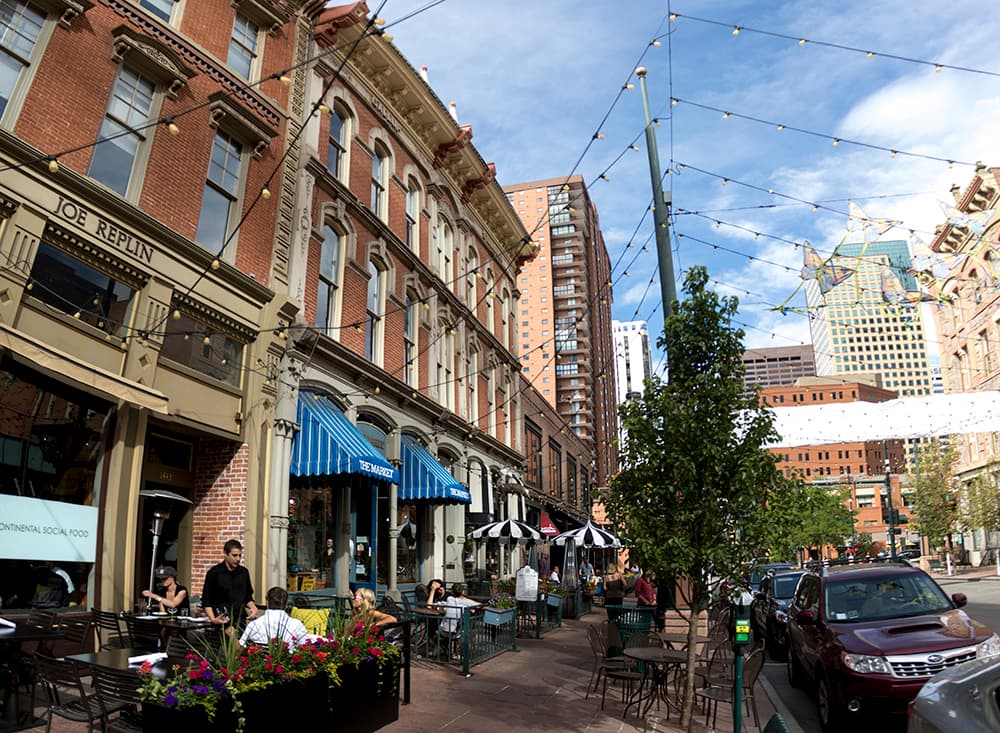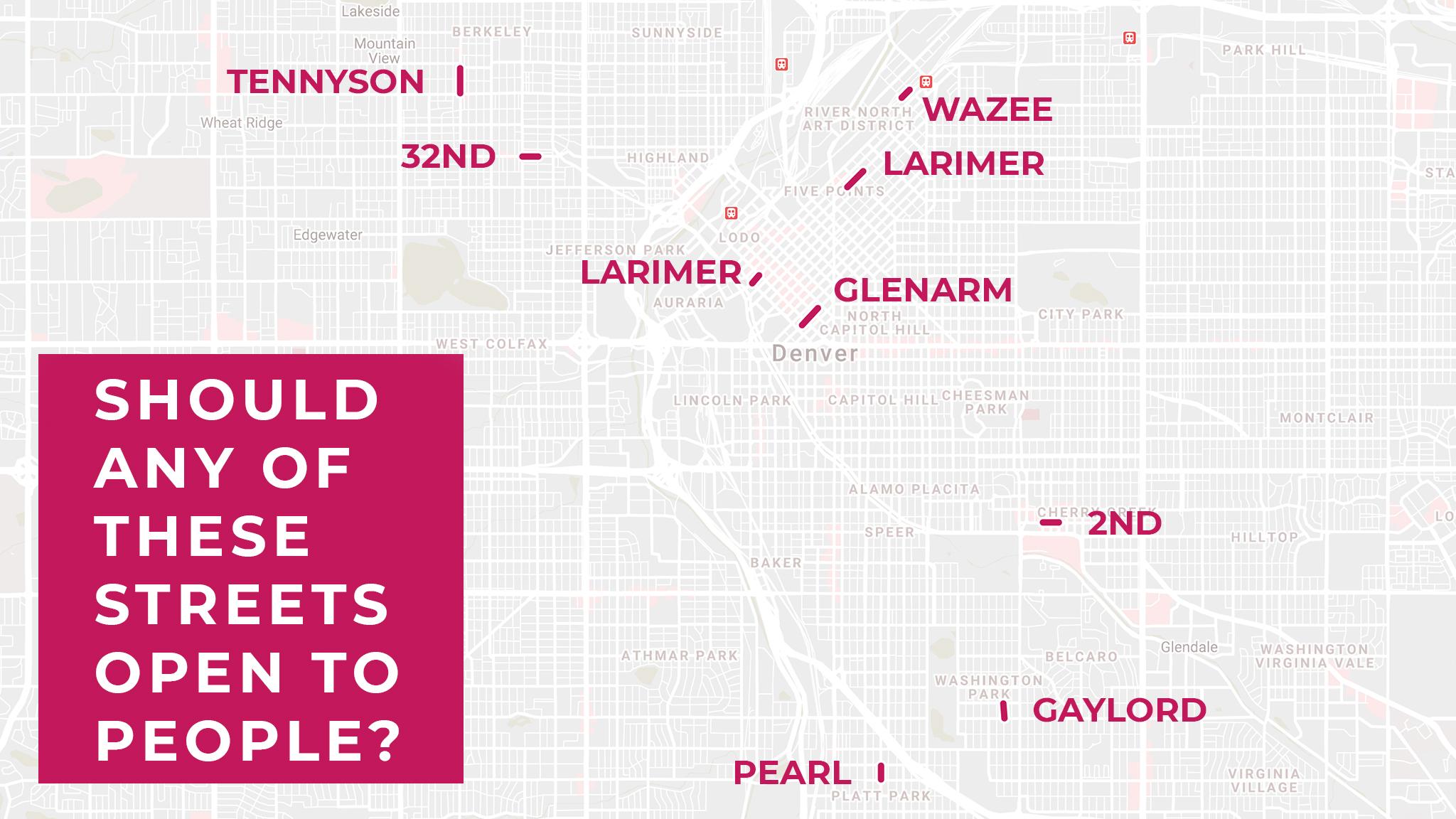The Downtown Denver Partnership has reached out to the city with an idea: closing city streets along commercial corridors to provide shops and restaurants more space to operate as many struggle to stay afloat due to the coronavirus pandemic.
DDP sent a letter addressed to Mayor Michael Hancock on May 7 outlining how the plan would work. DDP President and CEO Tami Door said the partnership, which advocates for business interests downtown, started discussing plans to allow more patio space for restaurants in April.
Creating the spaces would help hard-hit businesses that are struggling with restrictions placed by the city and state due to the pandemic.
The plan calls for allowing business districts, property owners and managers to apply for removing car through-traffic access and parking along certain streets. This would theoretically free up space for businesses to expand onto the street and provide more space for things like seating. This would all be done while following the city's physical distancing guidelines, DDP said.

Door said this could help both businesses like restaurants and ground-floor retail shops. According to the DDP, on average, Denver restaurants reported a 76 percent year-over-year decline in sales last month.
The plan was first reported by the Denver Business Journal. Door said these ideas aren't new; they would create spaces similar to The Square on 21st, a temporary park in the city's Ballpark district erected for two months during the summer of 2017.
"You can take other areas and it doesn't require as much infrastructure to make it truly successful," Door said. "Simply expanding the tables and the chairs and the seating is a really powerful way to activate that space."
DDP recommends the pilot programs run from Memorial Day to October 31.
Community Planning and Development spokesperson Laura Swartz said in an email to Denverite that city council members and city staff are considering requests from stakeholders about potential ideas for economic relief. They including things like expanded patio space to support restaurants, coffee shops and other hospitality businesses to allow physical distancing.
"We know restaurants are eager to re-open in a way that protects the health of their patrons, and see measures like expanded patio space as one way to do that," Swartz said in the email.
DDP suggested the following streets close as part of a pilot program:
- Glenarm Place midblock between 15th Street and 16th Street, and 16th to midblock between 16th Street and 17th Street (Upper Downtown)
- Larimer Street between 14th and 15th Streets (Larimer Square)
- Larimer Street between 26th and 28th Streets (RiNo Art District)
- Tennyson Street between 38th and 41st Avenues (Berkeley)
- 32nd Avenue between Lowell and Julian (West Highland)
- Wazee Street at 35th Street (The "L")
- Pearl Street between Arkansas and Florida (Platt Park)
- South Gaylord Street between Tennessee and Mississippi (Washington Park)
- 2nd Avenue between Clayton and Fillmore (Cherry Creek North)
Door said these are places the DDP thinks would be successful. But she noted these are only suggestions and the DDP would welcome more ideas for places throughout the city.
Apart from the economic impact, Door said creating this space along some streets would help bring back the sense of neighborhood many places are now missing because of the pandemic.
"People need to be both be safe and feel safe, and that means their physical wellness and their mental health," Door said. "That is another benefit of looking at why these kinds of uses of space are so important."













